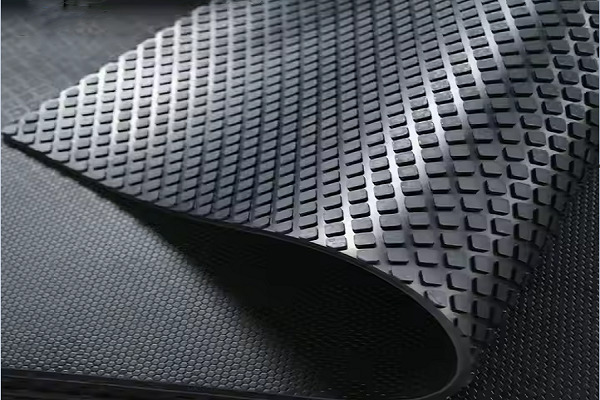
In the process of dairy cow farming, the environment and facilities in the cow stalls have a crucial impact on the health and production performance of the cows. Rubber mats, as a key component in the stalls, are increasingly becoming the preferred choice for many farmers.
Rubber mats for cow stalls offer several significant advantages.
Their excellent durability and elasticity can effectively reduce the pressure on the cows’ bodies when they lie down, significantly lowering the risk of joint and hoof injuries. Cows resting on the soft and elastic rubber mats are like humans lying on comfortable mattresses, allowing their bodies to fully relax. This is particularly beneficial for their recovery after long periods of standing and walking. Moreover, high-quality rubber mats have excellent water absorption, quickly absorbing the urine and other fluids excreted by the cows, keeping the stalls dry and clean, reducing the breeding ground for bacteria, and thus lowering the risk of diseases such as mastitis caused by a damp environment, creating a healthy and hygienic living environment for the cows.
In practical applications, different regions and farms have their own experiences.
Many farms have widely adopted rubber mats. These rubber mats are easy to clean of feces and urine, keeping the cow stalls clean. Their heat insulation and moisture-proof properties also provide cows with a relatively comfortable resting space in various climatic conditions. Although the initial investment is relatively high, the long-term benefits, such as improved cow health, increased milk production, and optimized milk hygiene indicators, far outweigh the initial costs.

>send emails to sales@jingdongrubber.com,get a quote now
For farmers, there are several key points to consider when choosing and using rubber mats for cow stalls.
Firstly, it is essential to ensure the mats are of high quality.
Hard cow beds can lead to low lying rates and short lying times for cows, and in severe cases, can cause abrasions and ulcers on their front and hind limbs. Therefore, it is necessary to select rubber mats with moderate softness and good elasticity.
Secondly, attention should be paid to the moisture control of the cow beds.
A damp environment not only makes cows uncomfortable but also promotes the growth of bacteria, leading to various diseases. In addition to relying on the mats’ inherent water absorption, measures such as proper ventilation and regular cleaning are also needed to maintain the dryness of the beds.
Research has found that laying fermented and dried cow manure bedding on the rubber mats is an effective way to enhance the comfort of the cows.
This can increase the friction of the beds, making it more stable for cows to get up and lie down, thereby increasing the lying time of lactating cows and significantly improving the comfort of the beds. When cows are in a comfortable state, their welfare is enhanced, and they can rest and move more freely, which directly reflects in increased milk production and improved milk hygiene indicators, achieving a dual improvement in production and quality, and promoting the growth of farming benefits.
Rubber mats for cow beds play an extremely important role in dairy cow farming. Farmers should fully understand their characteristics and advantages, make reasonable choices, and use them correctly to create a comfortable and healthy living environment for the cows. Only in this way can sustainable development in dairy cow farming be achieved, and good economic and social benefits be reaped.
Jingdong Rubber Co., Ltd. is a professional rubber sheet manufacturer, producing silicone rubber sheet, natural rubber sheet, fluorine rubber sheet, neoprene rubber sheet, insulating rubber sheet,EPDM rubber sheets, oil-resistant rubber sheets, anti-static rubber sheets, flame-retardant rubber sheets, conductive rubber sheets, anti-slip rubber sheets, and cowshed mats, etc. with 40 years of industry experience, are popular both at home and abroad. If you need any of our products,please send emails to sales@jingdongrubber.com.

